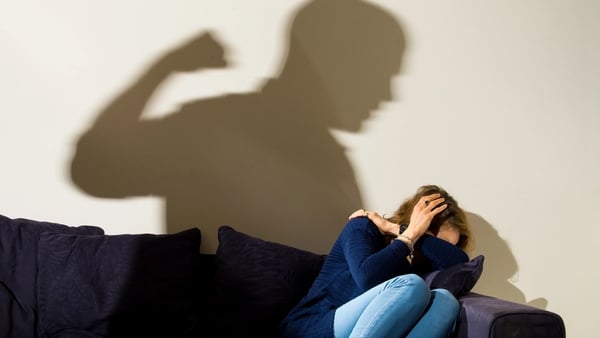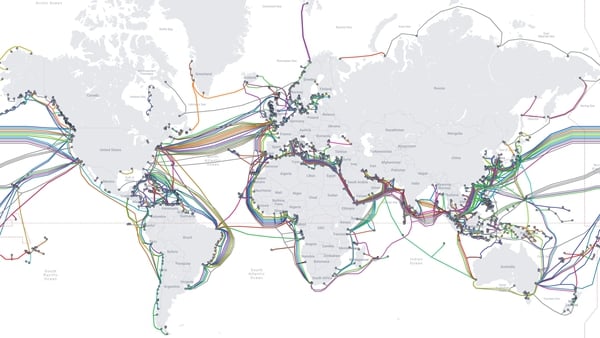New guidance urging parents not to buy smartphones for their primary school age children has been introduced by Minister for Education Norma Foley.
The response has been prompted by concerns about primary school children's potential exposure to cyberbullying, along with violent and sexual content.
While some people believe the guidelines don't go far enough, others believe they're lazy and shortsighted.
As part of The Conversation from RTÉ's Upfront with Katie Hannon, we asked two people to join our WhatsApp group to discuss the guidelines approved by the Cabinet on Tuesday.
Alex Cooney is the co-founder & CEO of CyberSafeIreland. She's disappointed that the recommendations don't go far enough.
Keith Walsh is a writer and broadcaster. He believes the new policy will punish children.
Alex Cooney
Hi Keith. I'm encouraged to see that she [Minister Norma Foley] is engaged on the issues and recognises the concerns that many schools have about smartphone use amongst children, but the guidelines have a largely singular focus on smartphones. What about other smart devices – eight to 10-year-olds are much more likely to own a tablet or games console. I'd like to see the Department of Education focus on how schools can support kids by educating them.
Keith Walsh
Hey Alex. Can we just go back a few months to the lockdown when smart devices, PCs, games consoles were vital to children, parents and school so that children could socialise with friends and attend classes and parents could continue to work. How could it be that they were so integral to a child's life over a year ago and now they're bad for them? It's very confusing and with the utmost respect, your business is cyber security - of course you're going to agree that this is an issue.
Alex Cooney
I agree that the lockdowns accelerated use of smart devices by children - and that they were a vital lifeline. As a charity, our message is not to ban children's use of tech. Far from it. We recognise that they're growing up in the digital age. Our concern is that they are going into these online spaces ill-equipped and unprepared. That is what has to change. We need parents actively engaged with what their kids are seeing and doing online at home, especially when they're young and we need schools teaching them about how to be online in a safe, productive and smart way.
Keith Walsh
Well then, we need to put pressure on parents to actively engage with their children on the issue of smartphones and other tech. But what's happening here is that once again, children are the ones being punished. Adults won't or don't have time to engage with their children, so we ban phones. I'm just amazed that there is so many issues that the Department of Education need to fix, things that they should fix, like better pay for teachers, more schools, funding etc and the minister is announcing this as if they've don't something - banning is the opposite of doing something- it's lazy, shortsighted and ultimately doesn't work.
Alex Cooney
I agree that the use of word 'ban' is unhelpful and that prohibition type approaches don't generally work. I also agree that schools have many other issues that they're grappling with but that doesn't take away from the central importance that they, and others, have a role to play in supporting kids to be safe and smart online.
Children are growing up in the digital age and they are extremely active online. From our recent Trends & Usage report, we found that 93% of children aged eight to 12 have their own smart device, 84% have their own social media account, 25% have been cyberbullied and 26% have seen something online that scared or upset them.
The vulnerability here is unsupervised, unfettered access. We have to equip kids - both at home and in school through education - to be able to make the most of the many opportunities that exist for them online but also so that they can avoid risk and harm.
This shouldn't be about putting the responsibility on kids themselves. It's a wider societal problem and one that tech companies that provide online services have a very important role to play in too.
Keith Walsh
But children are bullied in school, in the playground, in government run care facilities - not to mention the abuse children suffer in real life. These are the issues we need to be dealing with. Are smartphones problematic? Sometimes. But so is real life, even more so. Should we ban them from having friends? Going to school? Living in their family home? Where most of the abuse and bullying occurs?
Alex Cooney
Yes, bullying and abuse happens offline too. But children can be particularly vulnerable to those things online and things can be amplified online in a way that's hard to replicate offline. An example would be child sexual exploitation. The internet facilitates access to children and the periods of lockdown we referenced earlier, massively increased the incidence of online enticement and child sexual abuse material (all global agencies that monitor this are reporting this). Pre-internet, it was generally one perpetrator, one child. Now, we have seen cases with one perpetrator, five hundred children. The intention is not always to meet up with the child in person but to gather material. This can be happening in the safety of a child's own home, in the bedroom, with the door shut, and parents in the house. This is one massive vulnerability that we are concerned about. Perpetrators of such abuse are going to the places where children are online - the popular gaming and social media online platforms that children use.
Keith Walsh
Yeah, I just think we're punishing the children again for issues caused by the adults. If children were a race, there would be outrage at the way we (adults) treat them. Control, domestication seems to make us feel better.
Alex Cooney
I don't think talking about equipping them and supporting them to be online is about punishing them, it's about recognising they're vulnerable in certain ways and trying to address that - at home, through engaged parenting and at school through education. I'm not talking about a ban, I'm talking about recognising the fact that they're really active online - often inhabiting spaces online that were designed for adults by adults. We can't just leave them to it as there can be very real consequences (like giving a toddler a bike and saying, 'off you go!')
To sum it up, I would say that children should be equipped for the digital age and that responsibility lies with:
- parents at home (to make good choices about when they get the device, when they get more independent access, good boundaries etc)
- Schools through education - as a core, rather than peripheral topic
- Tech companies to do far more to recognise and protect child users in online spaces
- Government - through legislation, policy, public awareness campaigns and holding companies to account.
Keith Walsh
To conclude: Smartphones aren't the issue. We need to actually listen to young people and ask them what they want. That means really listening. They're very smart. Smarter than a phone for sure.
Alex Cooney
From my point of view, as much as it's positive to see engagement from the minister on the issue and efforts to address online harms, we need to go further. We need schools to educate kids in a very central way and parents at home engaging etc. Many thanks.
Keith Walsh
Thanks, Alex.





